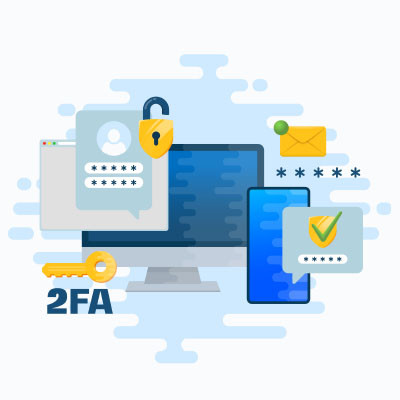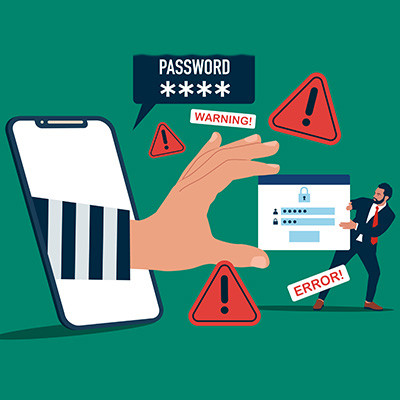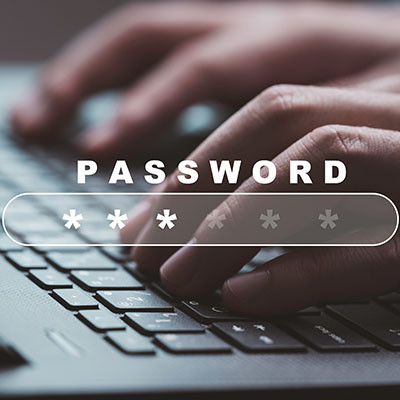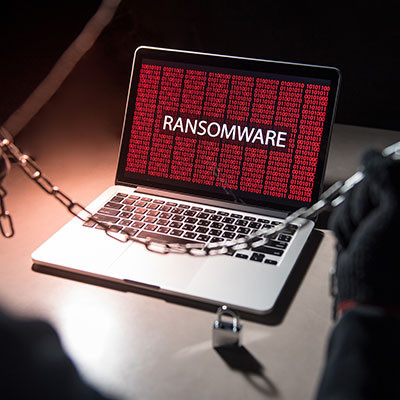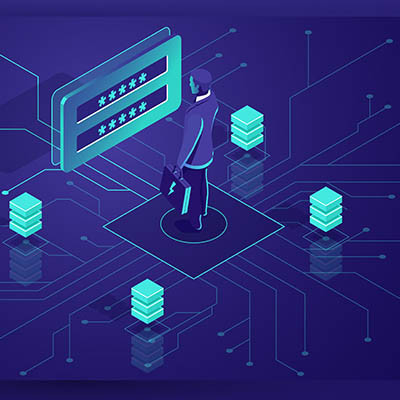Unfortunately, cybersecurity is one of the most important topics to consider in today’s business world. A recent survey has shown that the majority of security leaders—approximately 67% of those surveyed—don’t know what caused a cybersecurity incident at their business. This is a shockingly high number that cannot be ignored, so let’s look at why data breaches are so challenging to identify and address.
USA Computer Services Blog
Data security is one of those things that you have to stay out in front of. Hackers and scammers are changing tactics and getting a little more sophisticated as time goes on and it creates a pretty difficult situation for most IT administrators. Utilizing multi-factor authentication (MFA), two-factor authentication, or whatever it is called by the application you are using has become a great way to add an extra layer of security to organizational data protection efforts. Today, we will discuss the benefits of this strategy and why it isn’t a be-all, end-all to your overall security.
It should come as no surprise that one of the biggest online retail days of the year also incites a lot of scams and threats targeting not just consumers, but online businesses as well. Let’s go over some of the major statistics surrounding online retail scams and what you should know as you navigate the post-holiday chaos.
Social media has become deeply ingrained in today’s culture, from business to personal connection. Businesses stake their reputation on the platforms, and individuals and families use them to connect with one another in ways they never were able to before. This is why it’s so scary to think about what would happen if an account were hacked or taken over.
Let’s look at how social media hacks are disruptive and potentially catastrophic to a business owner.
When it comes to who is victimized in cybercriminal efforts, there may be a few stereotypes and presumptions that a lot of people may hold. A recent report, Oh, Behave!, released by the National Cybersecurity Alliance and Cybsafe, shows that the real victims of many forms of cybercrime aren’t who many would expect.
Modern businesses depend on cybersecurity to help keep operations from being targeted by hackers and other cybercriminals. Businesses need to be both resilient and agile in how they protect their infrastructure from these threats. Let’s discuss four of the most important ways your business can protect itself from the growing threats of malware, ransomware, phishing attacks, and other cybersecurity threats.
World Password Day is indeed a thing, and it’s a thing to celebrate in the world of business technology, as it celebrates password awareness and advocates account security in a time when cybersecurity has never been more important. To help you observe World Password Day, we want to go over why passwords are important and why you need to take password security seriously.
Bad news for T-Mobile users, they’ve suffered another data breach. Hackers have gained access to customer data for nearly 37 million individuals, including both pre-paid and subscription-based accounts. Let’s look at what has happened and what knowledge you might apply to your own network security practices.
Back during the holiday season, the Federal Trade Commission shared some data that showed that members of Generation X, Millennials, and Generation Z are all more likely to fall for online shopping scams than those over the age of 60…and not by a little, either. Those under that age are apparently 86 percent more likely to fall for these scams.
Cybersecurity definitely needs to be a point of emphasis for any business who relies on technology, after all if you suffer a data breach, it can have a direct impact on the way your business is viewed by potential customers or it can even have an effect on the way that you are able to operate. In order to keep your business secure online you need to depend on your staff. Like it or not, they are a major part of your business’ cybersecurity system and if they aren’t trained properly and understand their role, your business is low-hanging fruit for hackers.
As one of the world’s most popular messaging applications, WhatsApp is a well-known tool, even in the business world. More notable is that WhatsApp—a platform known for its end-to-end encryption and security—now has a modified and unofficial version called YoWhatsApp, which has been deploying malware to unsuspecting users.
There’s nothing more intriguing than finding a random USB drive while cleaning up your office or while out and about. You might feel the urge to plug it in and discover its contents, but we are here to tell you that this is often a bad idea—particularly if the drive is unfamiliar to you. Unlike cloud storage, which is quite transparent, you don’t know what’s on a USB drive until you plug it in, and it’s often too late by the time this happens.
We apologize for the pun, but we couldn’t help ourselves.
When you go about your business and attempt to onboard a new client or implement a new tool for your company, you spend time getting to know what your business is doing and why. Well, a newly formed ransomware group will spend up to two weeks mapping your network before launching its attacks, making it a potent threat actor that you should keep an eye out for on your business network.
Phishing scams are a topic we frequently discuss on this blog. In their simplest form, they are emails or messages sent that are designed to steal from you or gain access to computers or networks. One such scam uses the moniker of the popular IT support company Geek Squad, a subsidiary of Best Buy, to steal from its victims. Here’s how you can avoid falling for these tricks.
A data breach is no joke, and it can take many forms. Whether it’s a case of confidential data being viewed, copied, stolen, or destroyed, a data breach cannot be ignored. Let’s take a look at some of the various causes of business data breaches and what you can do to prevent them from sinking your organization.
There are all kinds of threats out there that can make things difficult for your business, but one of the biggest threats from this past year was ransomware. Ransomware encrypts data on the victim’s device so that it is inaccessible without the decryption key. Hackers have been successful with these extortion methods, as well as many others, yet ransomware continues to be a serious source of anxiety for businesses of all sizes and industries.
While considering cybercrime, it’s very easy to slip into a dichotomy: hackers are bad, while not-hackers are good. Like most things in life, however, the truth is that there is a spectrum to cybercrime. Let’s take a few moments to consider a few different types of hackers, and the hats that their roles determine they wear.
It’s the holiday season, and with it comes a multitude of hackers trying to cash in on everyone’s online purchases. These phishing scams always increase when the holiday season comes around, so it’s best to stay vigilant so that you don’t give yourself the gift of sadness this year. One such threat is already here, and it’s voice spoofing of Amazon orders.



